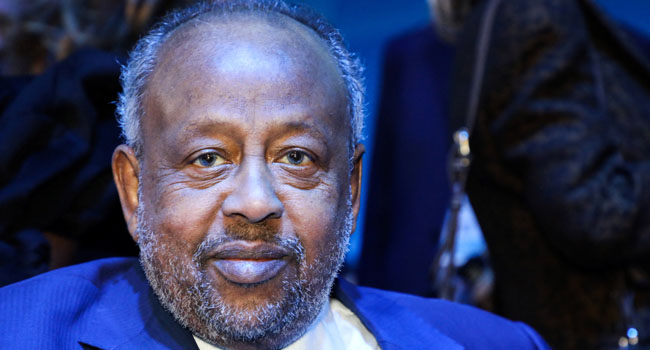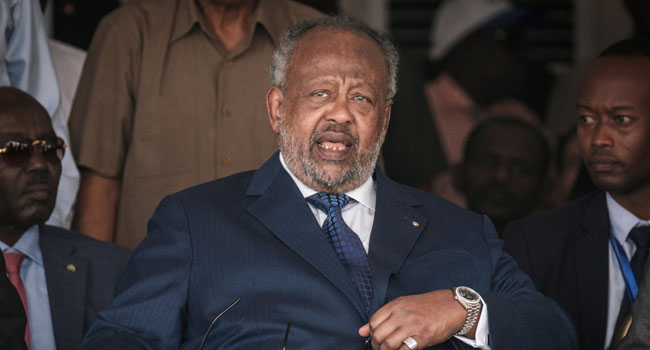73-Year-Old Djibouti President Set To Extend 22-Year Rule

![]()
Djibouti’s President Ismail Omar Guelleh is expected to extend his two-decade rule of the tiny Horn of Africa nation as the country heads to the polls Friday.
Guelleh, 73, is facing political newcomer Zakaria Ismail Farah, his only rival after traditional opposition parties decided to boycott the election.
A businessman specialised in the importation of cleaning products, Farah, 56, is seen by observers as unlikely to pose a significant challenge to the strongman who has been in power for 22 years.
Djibouti is a largely desert country strategically situated on one of the world’s busiest trade routes and at the crossroads between Africa and the Arabian peninsula, a short distance from war-torn Yemen.
Under Guelleh, the country has exploited this geographical advantage, investing heavily in ports and logistics infrastructure.
At the same time the country has seen an erosion of press freedom and a crackdown on dissent.
“Little by little, there has been a hardening of the regime since 1999,” said Sonia Le Gouriellec, a political scientist who authored a book on Djibouti.
“The more it has opened to the world, the more it has closed internally.”
Guelleh’s predicted fifth term will be his last, under a 2010 constitutional reform that scrapped term limits while also introducing an age limit of 75 which would lock him out of future elections.
READ ALSO: COVID-19: Millions Mark Easter As Pope Urges Jabs For Poor
Djibouti’s election campaign came as the country saw Covid-19 infection rates soar by 38 percent in the past week, with some 200 cases a day in the country of almost one million people.
The rate of positive tests is 23 percent.
Nevertheless, thousands turned out for rallies for the ruling Union for the Presidential Majority (UMP), many without wearing masks.
Farah — who had to renounce his dual French citizenship to join the race — held a few small rallies before cancelling the rest in the 10 days leading up to the polls.

He complained that he was not offered security services for his rallies.
The challenger, who has styled himself as the “flag-bearer of poor Djiboutians”, appeared with his wrists bound and mouth taped last month at one of his rallies to protest “unequal treatment”.
In 2020 Guelleh faced an unusual wave of opposition protests, which were brutally suppressed, after the arrest of an air force pilot who had denounced clan-based discrimination and corruption.
And police broke up several spontaneous small protests against Guelleh’s fifth term in the run-up to the election.
– Dependence on China –
Djibouti, which gained independence from France in 1977, has remained stable in an often troubled region, drawing foreign military powers such as France, the United States and China to establish bases there.
The country, seeking to become a trade and logistics hub, in 2018 launched the first phase of what will be Africa’s biggest free-trade zone, financed by China.
The Asian powerhouse — which sees Djibouti as a critical part of its “Belt and Road” global infrastructure initiative — also funded the building of a railway to Ethiopia.
“Previously there were many alliances… What happened during the last mandate is that they fell into a… total dependence on China,” Le Gouriellec said.
On the international stage, Djibouti suffered a setback in its diplomatic ambitions in 2020 when it lost out to Kenya for a non-permanent seat at the UN Security Council.
The country’s economy shrank by one percent in 2020 but is expected to grow seven percent this year, according to the International Monetary Fund.
Djibouti’s GDP per capita is about $3,500, higher than much of sub-Saharan Africa, but some 20 percent of the population lives in extreme poverty and 26 percent are unemployed, according to the World Bank.
AFP


